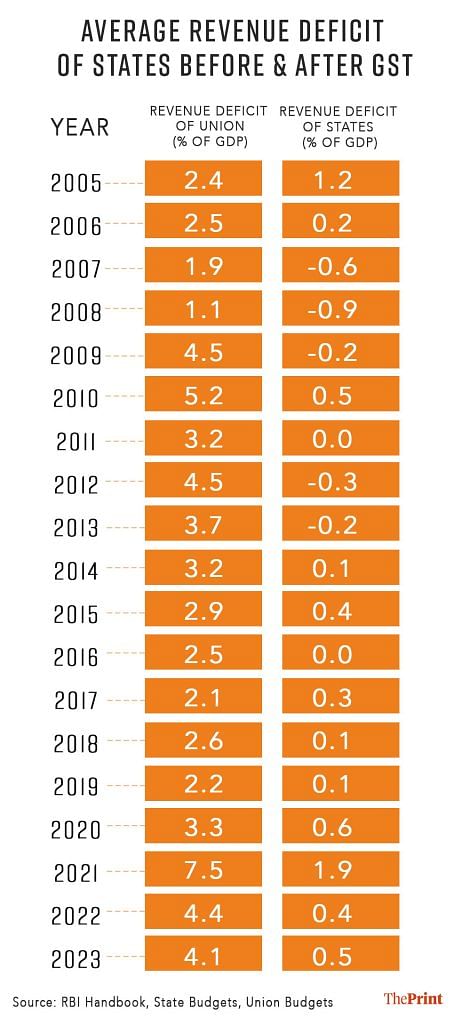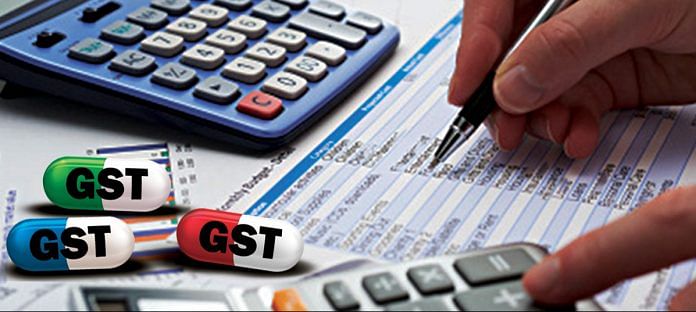In the run up to independence, the Cabinet Mission Plan of 1946 recommended that the states/provinces of British India have almost complete fiscal sovereignty while significantly restricting the power of the Union. This idea was favoured by Lord Mountbatten and the British colonial administration, and was also acceptable to Muhammad Ali Jinnah as a step short of partition. Alas, as we now know, that did not come to pass for complicated political reasons. Jawaharlal Nehru argued for a stronger Union to help his agenda of fighting poverty with industrialisation while BR Ambedkar wanted a stronger Union to counter the threat of elite capture of local and provincial governments.
Control over the purse, aside from its monopoly on violence, is, after all, the most significant power that a modern government has. Between the local, state, and Union governments, the degree of taxation by each layer generally determines how much of an influence that layer has on our lives. Ideally, the government closest to the people should have the maximum power while the farthest one should have the least. This principle, in fact, was a rallying cry during the American War of Independence.
But India set up a system that skewed heavily towards the Union. States have very little power when it comes to taxation. By design, the Union controls the buoyant sources of taxation—like income tax and corporate tax. And the last vestige of freedom for states to own some indirect tax sources was taken away with the adoption of GST.
The GST sought to unify the entire country into a single market. One may or may not agree with that intent based on whether one sees people and states as a political unit or as a market first. But beyond that, even within the strict utilitarian framework of capitalist logic, the introduction of GST has resulted in a ballooning of deficits.
In the ten-year period before the introduction of GST, from 2005-06 to 2015-16, the combined state budgets of all Indian states had a revenue surplus on average. However, in the period since 2017, when GST was introduced, the average of all state budgets shows a revenue deficit of 0.6 per cent of GDP. One could argue the pandemic had an adverse effect, but even excluding its impact, these post-GST years show an upward trend in revenue deficits. Likewise, and as a natural corollary, they also show an upward trend in fiscal deficit.

Also Read: Why doesn’t Maharashtra complain about allocation like South Indian states? Allocation ratios
States’ Own Tax Revenue: a toxic recommendation
The Reserve Bank of India, on its part, looked at the problem and came up with a suggestion that seems tone deaf and technocratic, in the pejorative sense, for those concerned with India’s federal structure.
In its December 2023 report, titled ‘State Finances: A Study of Budgets 2023-24’, the RBI suggests that with the GST having an impact on the “vertical fiscal imbalance”, states should consider collecting additional taxes under the head, ‘States’ Own Tax Revenue’.
The term vertical fiscal imbalance is a fancy way of saying the Union collects more taxes than it requires for its spending obligations, leaving the states with less revenue and more expenditure demands. This means the states need to rely on the Union to transfer some of the taxes collected back to them. The Finance Commission determines the specifics of this devolution, including the quantum and the distribution formula.
The problem, however, is that the Union government sets the terms of the Finance Commission, which decides how much the Union gets to keep for itself and how much it should share with the states.
It’s worth noting that in every Finance Commission report in the last 30 years, there is a discussion on how states are fiscally profligate and need to show discipline. This is often used as an excuse for devolving less to the states.
Except, as the table shows, the states, if anything, have managed their finances better than the Union. Therefore, all states must ask why they have to endure lectures on financial discipline from the Union.
Other than GST, another troubling development is that the budgets of relatively prosperous states are impacted badly by the Finance Commission’s allocation ratios, owing to population parameters. These are also the states that have accumulated the highest revenue deficit. For instance, Tamil Nadu, Kerala, Punjab, Karnataka, Telangana are among the states that had the highest revenue deficit in 2023. In contrast, states benefiting from the allocation ratio formula, like Uttar Pradesh and Madhya Pradesh, have revenue surpluses for the same year.
It is in this context that the RBI’s recommendation is toxic. What it suggests is that states impose additional taxes on their citizens to make their books look better. The report also contends that the ability to collect more taxes at the state level, without dependence on Union transfers, is a sign of improved economic capacity. That may well be true. But is that fair?
Also Read: South vs north debate isn’t divisive, Centre’s ‘one nation, one policy’ is
Federal or feudal?
Consider two states: Telangana and Madhya Pradesh. The RBI report shows that Telangana met 73.2 per cent of its revenue expenditure from its own state-level taxes. Madhya Pradesh, however, covered 45 per cent of its expenditure with its own revenues. At one level, this disparity is expected in a federal union; some states, by virtue of being more prosperous, transfer some of their wealth to poorer states. Telangana is thus being benevolent. But the problem with the RBI recommendation is that it wants Telangana to increase this 73.2 per cent even higher!
For every additional rupee that Telangana uses from its state-level tax revenue to meet its expenses, it forfeits a rupee of Union transfer that was partly paid for by citizens of Telangana. This results in additional taxation on Telangana citizens for the same rupee they sacrificed out of generosity.
Essentially, the RBI seems to want to punish the citizens of these states by forcing them to pay twice over—once for the state and once for the Union. This, instead of striving for a scenario where a state’s own tax revenue forms a more balanced portion of its total revenue expenditure.
Technocratic solutions, couched in the language of efficiency, often obscure the principles of political fairness. What the RBI has done is exactly that. If GST has demonstrably resulted in higher deficits, the reasonable question to ask is, why should we not reconsider it? Should the skew in the direction of the Union government not be questioned?
The Union government arbitrarily gets to rename some of the revenues it collects as “cess” and, therefore, does not have to share it with the states in the devolution process. Why is the Union government not an equal partner in terms of sharing the burden of fiscal discipline? States are expected to follow the orders of the Union government, which clearly feels no obligation to follow its own advice.
All governments are elected by people. The concept of one government ‘sitting on top’ of another is a feudal idea that belongs in the Middle Ages. Modern governments and institutions, like central banks, would do well to not think like medieval chieftains.
Nilakantan RS is a data scientist and the author of South vs North: India’s Great Divide. He tweets @puram_politics. Views are personal.
(Edited by Asavari Singh)



